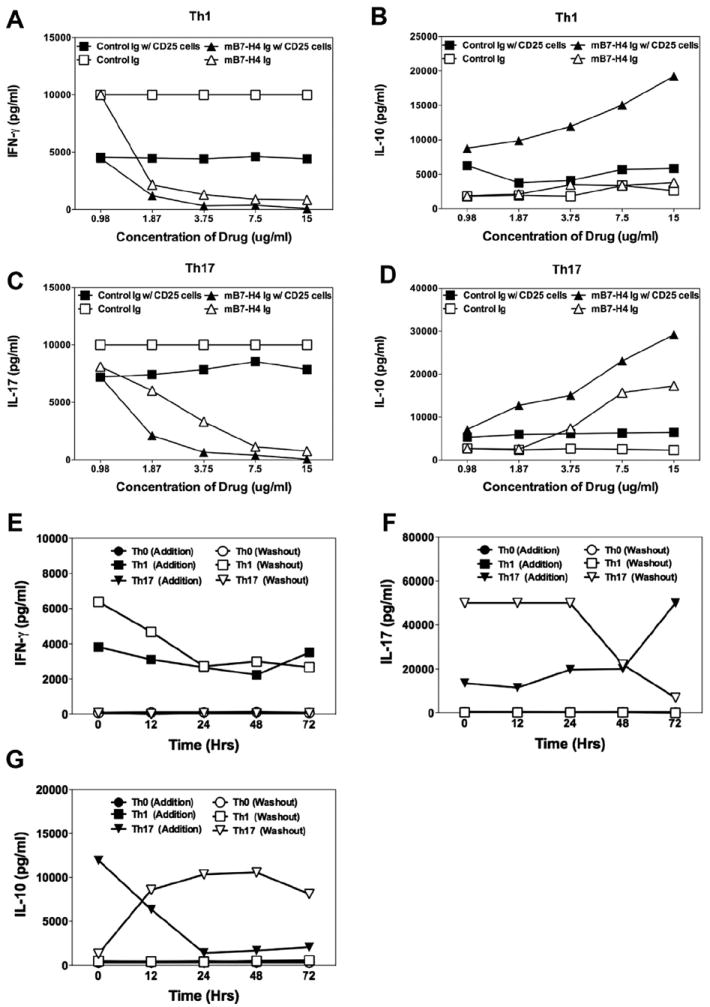Fig. 3.

B7-H4Ig inhibits mouse Th1/Th17 cell differentiation. (A–D) CD4+ T-cells were isolated from naïve DO11.10 mice either specifically excluding CD25+ nTregs or not (following manufacturer protocol). Cells were cultured (5 × 105 cells + 5 × 105 irradiated BALB/c splenocytes + OVA323–339 (20 μg/ml) (A and B) in Th1- [IL-2 (100 U/ml), IL-12 (10 ng/ml), and anti-IL-4 (1 μg/ml)] or (C and D) Th17-promoting conditions [TGF-β (10 ng/ml), IL-6 (50 ng/ml), IL-23 (10 ng/ml), anti-IL-2, anti-IFN-γ, and anti-IL-4 (1 μg/ml)]) in the presence of increasing concentrations of species and isotype matched Control-Ig or mB7-H4Ig (0–15 μg/ml). (E–G) As above, CD4+ T-cells were isolated from naïve DO11.10 mice specifically excluding CD25+ cells and cultured in Th0 cell- [IL-2 (100 U/ml), anti-IL-4, and anti-IFN-γ (1 μg/ml)], Th1 cell-, or Th17 cell-promoting conditions. Control-Ig or mB7-H4Ig (10 μg/ml) was added to the cultures at the various times as indicated or washed out of the cultures at the various times after culture initiation and recultured for the remainder of the 96 h. The levels of IFN-γ, IL-17, and IL-10 were assayed via LiquiChip. One representative experiment of two is shown.
